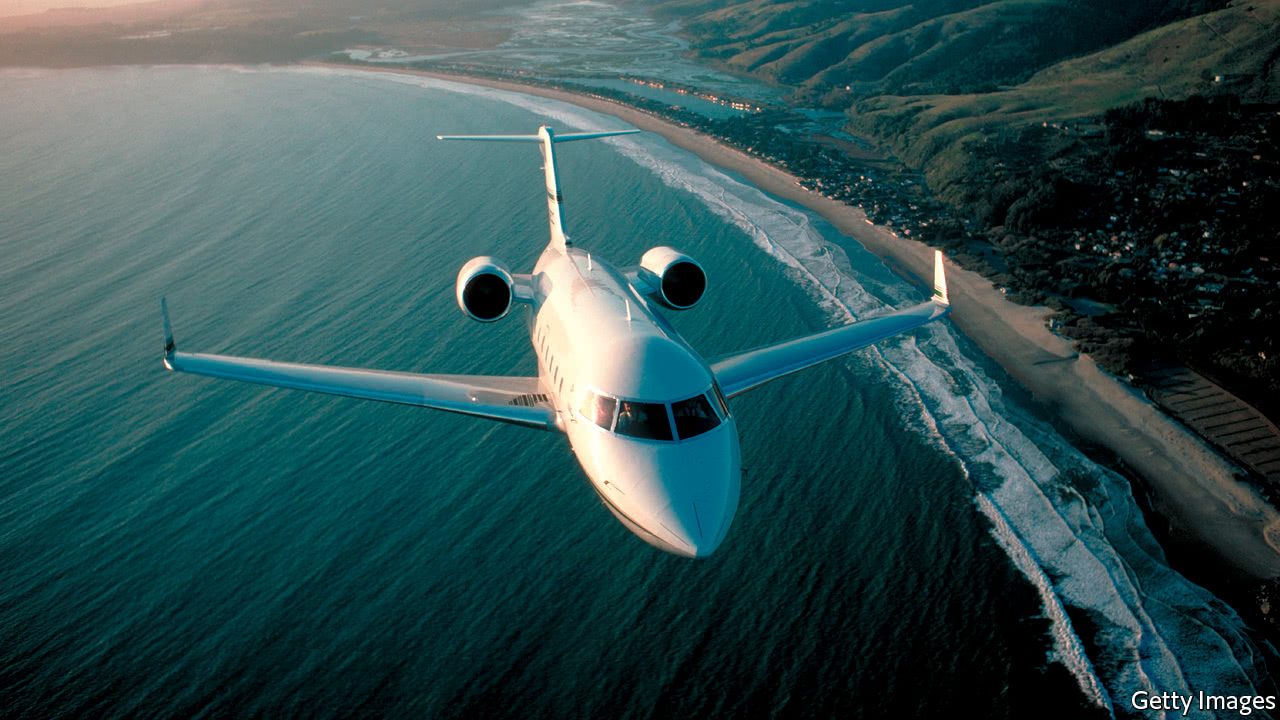
ONE of the first corporate jets was owned by Harry Ogg, the president of a washing-machine company. Bought in 1929, the four-passenger plane was named “Smilin’ Thru” and was decked out with a desk, a typewriter and space for washing machines. On sales trips Ogg told the pilot to fly low over a town, with the plane’s siren wailing. The commotion drew residents to the airport, where Ogg demonstrated the benefits of his white goods in a slick sales pitch.
Most aspects of corporate jet setting have changed since Ogg’s day. Planes are more likely to be owned by a hedge-fund manager than a white-goods salesman. They are kitted out with televisions rather than typewriters. Moreover, they tend to be too costly for entrepreneurs to use as clever marketing tools. Yet even though such stunts remain a dream for many, their revival may be edging slightly closer. That is because the price of private jets has tumbled in the last few years, as Bloomberg recently reported.
-
Private jets are getting cheaper
-
Retail sales, producer prices, wages and exchange rates
-
Foreign reserves
-
Annie Baker is a master of loaded silences
-
Argentina’s vegan Mondays
-
China’s leader Xi Jinping declares the start of a “new era”
Prices are falling particularly fast in the second-hand market. In 2016 the average price of a used private jet was 56% of its original cost, down from 91% in 2008, according to data from JetCraft, a plane broker. As Barry Justice of Corporate Aviation Analysis & Planning, a consultancy, told Bloomberg, such discounts are “insane”. Colibri Aircraft, a pre-owned plane broker, looked at the change in the asking price of second-hand jets between April 2014 and April 2017. The cost of a Bombardier Global Express (pictured), a large-cabin craft, fell from $31m to a mere $20m. And the Cessna Citation Mustang, a light-weight model, can be purchased for a snip at $1.9m, down from $2.2m.
The market for new private jets is experiencing a lull, too. Sales numbers have fallen since their peak, before the financial crisis, and prices have plateaued in the last few years.
Part of this is explained by oversupply. A glut of corporate aircraft is flooding the market, pushing many manufacturers, such as Gulfstream and Bombardier, to cut back production. And when jet-owners upgrade to new models they flog their old wings. This depresses second-hand prices further, as Oliver Stone of Colibri Aircraft told the Financial Times.
Despite an economic recovery in America, demand for private jets has remained weak. And sales in emerging markets dropped off after commodity prices collapsed in 2014.
Corporate belt-tightening has dampened demand further. Tesco, a supermarket, sold or returned its five planes in 2014 and 2015. In September GE announced that it would sell its corporate fleet. It hopes to save money by making executives travel on charter or commercial flights. That is just as well, because it will not get much for its planes on the second-hand market.
Source: economist
Private jets are getting cheaper